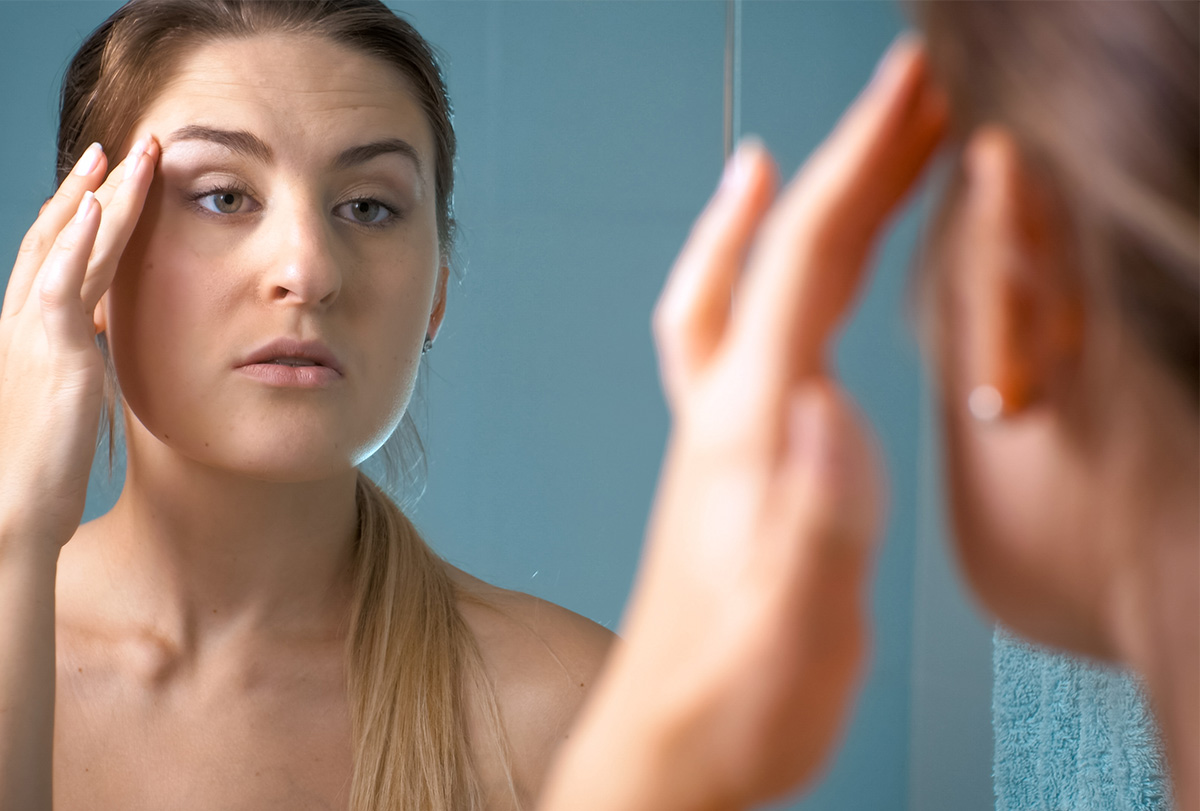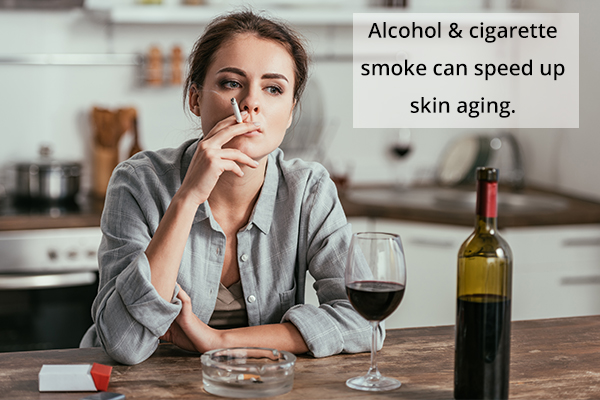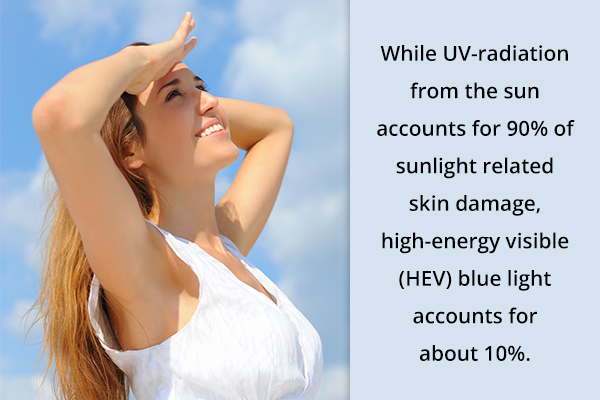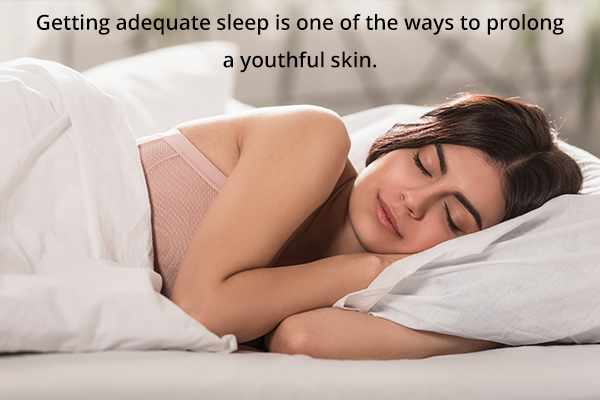In this article:
The skin goes through a lot of wear and tear daily since it’s the most exposed part of the body. It serves as the first line of defense against foreign irritants and it can get easily injured.

The good thing is the skin is fully capable of repairing itself through skin regeneration. This involves shedding the dead and damaged epidermal cells from the surface of the skin to reveal fresh new layers from underneath.
However, this process becomes slower as one gets older due to the age-related decline in the production of collagen, the main structural protein that makes up the skin. Without enough collagen, the skin cannot regenerate itself to maintain its youthful appeal.
Signs of Skin Aging
As you grow older, you may encounter the following common skin problems:
- Dry skin
- Bruising
- Wrinkles
- Loss of skin elasticity
- Hyperpigmentation
- Skin cancers
- Skin tags
- Other benign growths such as seborrheic keratosis and dermatosis papulosa nigra
ALSO READ: Signs of Skin Aging and How to Fix Them
Harmful Habits That Speed Up Skin Aging

Alcohol dehydrates the entire body, including the skin, resulting in skin dryness, fine lines, and wrinkles. (1)
Skin puffiness and bloating occur as a result of the body overcompensating for alcohol-induced dehydration. So make sure to stay hydrated when you drink alcohol.
Cigarette smoke contains nicotine and many other chemicals that impair blood flow to the outermost layers of the skin, starving the skin of oxygen and much-needed nutrients.
Repeated exposure of the skin to nicotine and the chemicals present in cigarette smoke damages the skin’s collagen and elastin. (2) These fibers are necessary for the youthful texture, elasticity, and glow of the skin.
The repeated pursing of the lips while inhaling cigarette smoke and other facial expressions such as squinting to keep the smoke out of the eyes can etch deep lines and wrinkles in the skin. (3) This is why perioral wrinkles (smoker’s lines) and periorbital wrinkles (crow’s feet) tend to be more prevalent in smokers.
Skin Damage Caused by Sun Exposure

Photoaging refers to skin damage related to prolonged and repeated exposure to high-energy wavelengths emitted by the sun. Ultraviolet (UV) radiation from the sun accounts for 90% of sunlight-related skin damage, while high-energy visible (HEV) blue light accounts for about 10%.
UVB
The UV radiation that affects the skin is composed of two different types of waves, UVA and UVB.
The shorter UVB rays cause sunburns with prolonged exposure and also increase the risk of skin cancer and other cellular damage. (4)
Fortunately, about 95% of all UVB light is absorbed by the ozone in Earth’s atmosphere. Most commercially available chemical sunscreens can shield the skin from the damaging UVB rays.
UVA
The longer UVA rays penetrate deeper in the dermis of the skin where they damage the skin’s collagen and elastin fibers. (4)
UVA photoaging also increases the production of abnormal elastin and, consequently, increases the production of enzymes called metalloproteinases. These enzymes break down the skin’s collagen, resulting in a weathered, leathery appearance of the skin.
Physical sunscreens that contain zinc oxide and/or titanium dioxide have broader coverage for UVA rays in addition to UVB protection. (5)
HEV
HEV blue light emitted by the sun and electronic devices, such as mobile phones, television sets, and computers, accounts for about 10% of photoaging. (6)
HEV exposure has increased over the years due to changes in people’s use of technology. Prolonged exposure to HEV can contribute to the breakdown of skin collagen and elastin and hyperpigmentation.
Stress-Induced Skin Damage
Emotional stress can lead to sustained high amounts of cortisol, the stress hormone, in the body. Cortisol can break down the skin’s collagen and elastin, leading to saggy, wrinkly skin. Increased levels of cortisol can also lead to hair loss and acne. (7)
Foods That Make Your Skin Age Faster
A diet high in processed sugars can promote skin aging. The effect of dietary sugars on the skin is mediated by glycation, a reaction between sugars and skin proteins (collagen fibers and elastin) to form advanced glycation end products (AGEs). (8)
AGE accumulation leads to a loss of protein function and impaired elasticity of the skin, and it enhances the damaging effect of UV radiation on the skin. The effect of AGEs is irreversible because there are no enzymes to remove AGEs from the human body. (9)
Skin Care Tips to Prevent Premature Aging
The following measures can help keep your skin firm, supple, and wrinkle-free for longer:
- Wear a mineral broad-spectrum sunscreen routinely, such as physical sunscreens with zinc oxide and/or titanium dioxide.
- Avoid a diet high in processed sugars.
- Quit smoking.
- Incorporate moderate regular exercise into your lifestyle.
- Invest in skin care products with antioxidants, such as vitamin C and E, retinoids, growth factors, and peptides.
Importance of Good Sleep for Younger-Looking Skin

Getting adequate sleep is one of the ways to prolong youthful skin. Chronic sleep deprivation can accelerate signs of skin aging and weaken the skin’s ability to repair itself from sun damage or oxidative stress. (10)
Role of Exercise in Fighting Premature Skin Aging
Moderate and regular physical exercise is a potent weapon in antiaging and promoting youthful skin because it reduces the accumulation of AGEs and oxidative stress in the body. (11)
Final Word
You can do nothing to stop the skin aging process, but you can do many things to delay it. For that, you must identify problematic behaviors, foods, and other factors that contribute to skin aging, and try and avoid them the best you can.
This should be followed by a stringent skin care routine along with favorable lifestyle and dietary changes aimed to improve collagen synthesis and overall skin health.
- Was this article helpful?
- YES, THANKS!NOT REALLY


